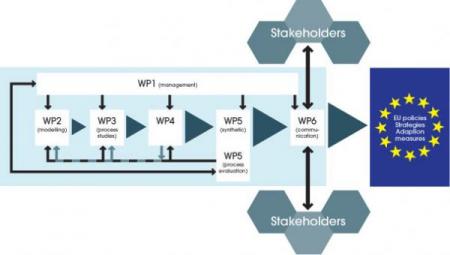About ArcRisk
Studies in the Arctic have identified populations that have very high dietary exposure to environmental contaminants, largely as a result of their traditional subsistence diets. Several of these populations have been the subject of detailed health studies.
The development of policies to reduce levels of environmental contamination and protect human health, that also take into account our changing climate, require a sound scientific basis.
The Arctic studies provide a rich source of information that can be used to make comparisons with situations in other parts of Europe, now and under future scenarios of climate change.
Long-range transport of contaminants to the Arctic, the resulting exposures observed in Arctic human populations, and impacts of such exposures on human health have been the subject of considerable work in recent years, providing a baseline against which to compare future developments. Global climate change has the potential to remobilize environmental contaminants and alter contaminant transport pathways, fate, and routes of exposure to human populations. The Arctic is particularly sensitive to climate change and already exhibits clear impacts. Research into contaminant exposure and its effects on human health in the Arctic, in comparison with other exposed populations in Europe, presents an opportunity to gain insight into changes that may later impact other areas. The influence of climate change on contaminant spreading and transfer and the resultant risk to human populations in the Arctic and other areas of Europe will be studied by:
- Research on the ways in which climate change will affect the long-range transport and fate of selected groups of contaminants, and possible implications for the re-distribution of contaminants (geographically and between relevant environmental media). This will involve modelling, utilizing the information base that exists on the distribution of such contaminants in the Arctic and other areas of Europe.
- Research on the impacts that changing pathways and climatic conditions will have on contaminant uptake and transfer within food webs, leading to foods consumed by humans. This will involve experimental work, process studies and targeted analytical studies, the latter focussed on supporting the modelling work, and process studies related to human exposure to contaminants.
- Research focussing on human health, aimed at determining how climate-mediated changes in the environmental fate of selected groups of contaminants will result in changes in exposure of human populations, in the Arctic and in selected areas of Europe.
Results of the research will be evaluated from a policy-development perspective and synthesised in products appropriate for policy-makers and other stakeholders.
























